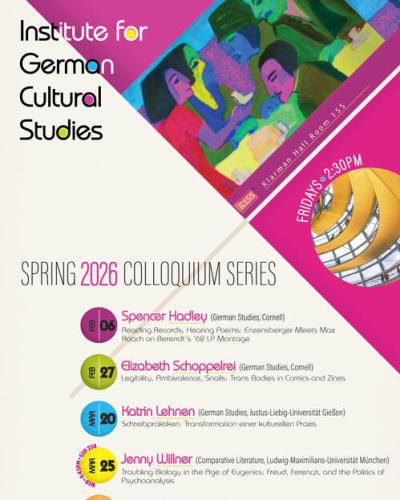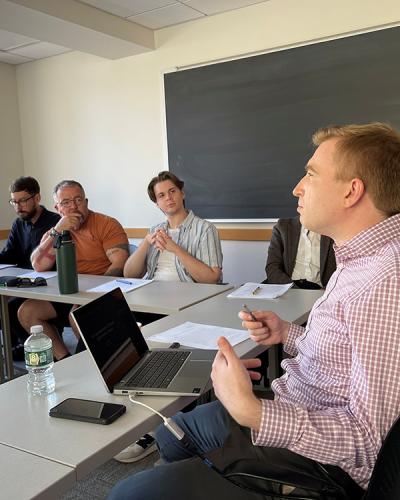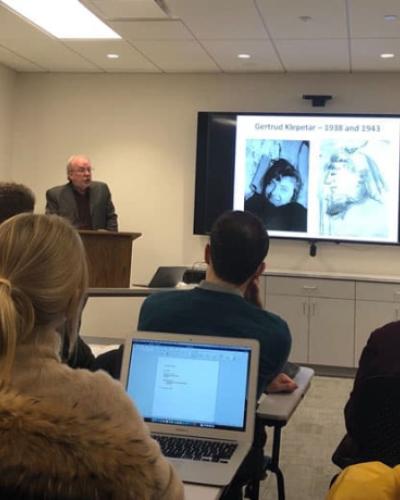On November 5th, Professor Peter Filkins (Bard College at Simon’s Rock) joined us for an insightful lecture on the life and work of H.G. Adler (1910-1988), a survivor of Theresienstadt and Auschwitz who recorded his experiences in both scholarly and literary writing. Despite the extent of Adler’s work, which includes modernist novels, poetry, short stories and essays, and an academic study of life in Theresienstadt, Adler and his writings have remained far too little-known among historians and literary scholars, says Filkins. With his authorized biography, entitled H.G. Adler: A Life in Many Worlds, Professor Filkins hopes to facilitate a deeper understanding of the life and work of Adler as a historical and literary figure.
Over the course of almost twenty years, Professor Filkins—a poet, literary scholar and accomplished translator—has studied, translated, and compiled Adler’s work. In writing Adler’s biography, he spent time at the German Literary Archive [Deutsches Literaturarchiv] in Marbach (Germany) examining the great variety of unpublished texts, diaries, and photographs Adler left behind, which provided minute details of Adler’s life before, during, and after Theresienstadt and Auschwitz. Yet the biography also sheds light on Adler’s literary and intellectual projects, thereby situating his work as both a subjective and objective account of the Holocaust.
In his lecture, Filkins mapped historical experience through both the biography of the author and his multifarious work. He drew largely on the biography’s first chapter, which encapsulates Adler’s time in Theresienstadt, but also sketched the years before and after his time there. Filkins also referred to passages in the biography that deal more directly with Adler’s scholarly projects. Overall, Filkins’ lecture succeeded in giving the audience a feel for the arc of Adler’s writings and of the biography itself.
The presentation was followed by a lively Q&A involving topics ranging from specific points about Adler’s literary work, such as his relationship to the writers Franz Kafka, Paul Celan, Günter Grass, and Adalbert Stifter, to questions about biographical details, including the fact that Adler gave lectures on Kafka, among other topics, in Theresienstadt.
As the lecture made clear, Professor Filkins’s work is invaluable not only because it offers a unique insight into the life and work of H.G. Adler, but also because it sheds light onto the process of preserving Adler’s work and making it accessible for a larger audience through his biographical publication. (Isabel Choinowski)





